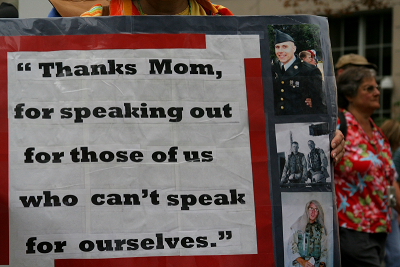wayne madsen reviews "an alliance against babylon" by john k. cooley
Cooley has had a unique view of the Middle East during his long and distinguished career. That comes from the personal relationships he had with the Middle East's most notable leaders: Ben Gurion, Anwar Sadat, King Hussein, Hafez Al Assad, Kurdish leader Mustafa Barzani,
Cooley presents the current American and British occupation of Iraq in a historical context -- and a very old one at that. He explains Israel's long affinity for the land once known as Babylon. Jews had lived for 70 years in Babylon during the Biblical era "Babylonian Captivity." A number of Jews decided not to return to Palestine following the captivity, choosing to live in Mesopotamia as a minority community, which flourished during the Abbasid Caliphate. Jews in Mesopotamia were even permitted to establish an autonomous government under a government called the exilarch. The exilarch was said to be headed by a hereditary direct descendant of the Israeli King David, who reigned 1000 years before Christ.
Before World War I, Cooley writes that Mesopotamia attracted the interest of European Zionists, including the General Jewish Colonization Association that interceded with the Turks to permit the mass migration of Jews from Europe to Ottoman-ruled Iraq, Palestine, Egypt, Cyprus, Syria, and Eastern Anatolia. Cooley describes the British ambassador in Istanbul reporting to London that the Zionist group wanted to establish "an autonomous Jewish state in Mesopotamia." Cooley's in depth research into the roots of modern Zionism helps explain why their ideological descendants in the George W. Bush and Tony Blair governments were keen to rid Iraq of Saddam Hussein and create a "new Iraq" (the proposed flag for which, since scrapped, strongly resembled the flag of Israel).
An Alliance Against Babylon by John K. Cooley: Exposes the true intentions of those who engineered the war against Iraq
Cooley also points out the chief post-World War II instigators of the bad blood that developed between Iraq's Hashemite monarchy and the newly-independent Jewish state in Palestine were Iraq's Prime Minister Nuri as Said and Israel's first Prime Minister David Ben Gurion. Iraq's thriving Jewish community were uprooted to Israel as a result of Mossad's first two major external operations, code named Ezra and Nehemiah. Another secret plan, Operation Babylon, extracted additional Jews from Iraq to pre-independence Palestine. The Hashemite kingdom only permitted Iraq's Jews to leave after they turned over all their cash and assets. When Iraq's Jews arrived in Israel, they were penniless wards of the fledgling state.
Cooley also recounts the experiences of an Iraqi-born Jew and ex Mossad agent in Iraq named Naiem Giladi. Upset at the treatment Jewish immigrants from Arab and Muslim countries received from European settlers, Giladi later described that terrorism and violence directed against Jews in Iraq in 1950 and 1951 was fomented by Mossad agents in order to speed up the emigration of Jews to Israel. Giladi reported that Iraqi Jewish synagogues and other property in Baghdad and other cities were bombed by Mossad agents but blamed on the Iraqi government. Ben Gurion covered up the entire operation.
Cooley points out that the disinformation used against Iraq by the Ben Gurion government in the 1950s would later creep into the neoconservative doctrine that Iraq represented a major military threat to Israel (and later, to the United States and Britain). In 1973, Israeli Air Force General Ezer Weizman (a later President of Israel) said that his wish was that "Israel had bases on the Euphrates." The whole Iraqi WMD contrivance and the use of the neo-con operative Ahmad Chalabi and his truckload of false intelligence used to justify an attack on Iraq was a continuation of the years of false propaganda about Iraq.
As early as 1993, the neo-con apparatus in Washington, DC was fueling the notion that Saddam Hussein was behind the 1993 World Trade Center bombing. Proto-neo-cons in the Clinton administration, like Secretary of State Madeleine Albright, did nothing to counter the disinformation about Iraq. By the time the arch neo-cons took power in 2001, the stage was set for a fateful confrontation with Iraq and a resulting bloody quagmire for the United States in the heart of the Middle East. The Knesset's Defense and Intelligence Committee chairman Yuval Steinitz held hearings on the faulty intelligence about Iraq. Although the final report is secret, Cooley recounts that one committee member told him that the report contained damning proof of the systematic exchange of false intelligence about Iraq between the Israeli and U.S. intelligence communities.
Israel continued to be active in Iraq's internal affairs throughout the 1960s and 1970s. The Mossad, in cooperation with the Shah of Iran's intelligence service SAVAK, helped establish a Kurdish intelligence service called PARASTIN. The support network for the Kurds continued up until 1975 when during a March 6 meeting between Saddam Hussein and the Shah met at an OPEC conference in Algiers. Cooley recounts what one senior Kurdish leader told him about Saddam and the Shah, "they dumped the Kurds into shit."
Cooley reminds us of how a young Saddam Hussein received support from the CIA in his attempt in October 1959 to assassinate Iraqi President Adel Karim Kassem. After Saddam was given exile in Cairo by President Nasser, Saddam was a frequent visitor to the U.S. Embassy in Cairo where he was protected by the CIA's top Middle East covert operator, James Critchfield. The CIA wanted Kassem out because he was a populist who wanted to use Iraq's oil revenues to build public housing for the poor. Kassem's main allies were the Iraqi Communists. Nasser, who despised the Communists because they were rivals of Nasser's own brand of pan-Arab nationalism, eagerly supported the 1963 Baathist Socialist coup against Kassem. During the coup, a secret CIA transmitter in Kuwait broadcast the names of Iraqi Communists. After the success of the coup, the Communists were rounded up, tortured, and executed. The CIA-engineered Baathist coup helped propel Saddam into power -- he became President in 1979 and was considered the best person to lead Iraq for U.S., British, and French oil companies: a leader nurtured by the CIA who was now in charge and in a position to reward his old friends with lucrative contracts.
This and other first hand knowledge gems of American Middle East hypocrisy, which are found in An Alliance Against Babylon should put this book at the forefront of every academic and personal reading bookshelf. No one, not even careerists in the CIA and State Department, has the unique insights of the Middle East that John Cooley has gathered after a career of covering every major event that has transpired throughout this critical region. The fact that the U.S. corporate media has instituted a virtual blockade on reviews of this book and other coverage of its contents means it contains information the Bush administration and its allies in the Middle East do not want you to read.



















